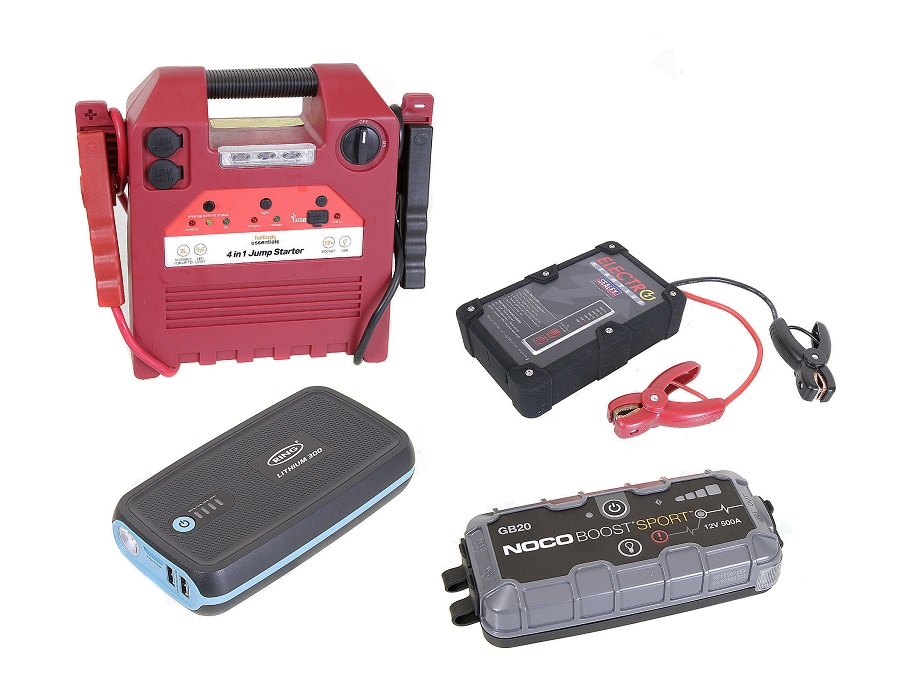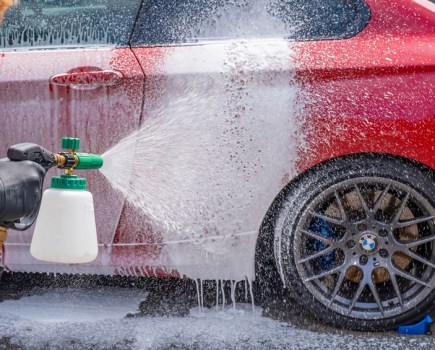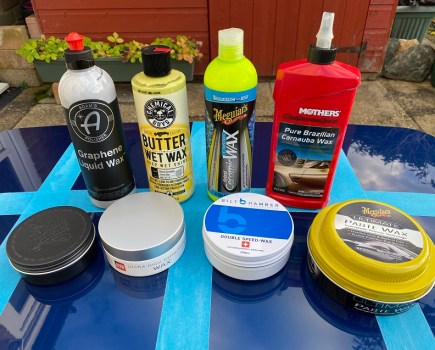Looking for the best car battery jump starters on the market? Well, to help you choose one, we’ve put twelve of the best head to head.
As the owner of a car, there are a core set of tools and tech that everyone should keep stored away in their trunk. One such bit of kit is a portable car battery jump starter. These useful devices have gotten us out of trouble plenty of times here at FC Towers, and we’re sure many of you can relate. After all, it’s all well and good having a set of jump leads to hand, but that requires a second car to get you out of bother…
Instead, standalone car battery jump starters are the perfect solution for when you’re on your own and stuck with a vehicle that refuses to budge. So, if you’re looking to purchase one, here’s our take on the best options currently out there to choose from:
Best Car Battery Jump Starters
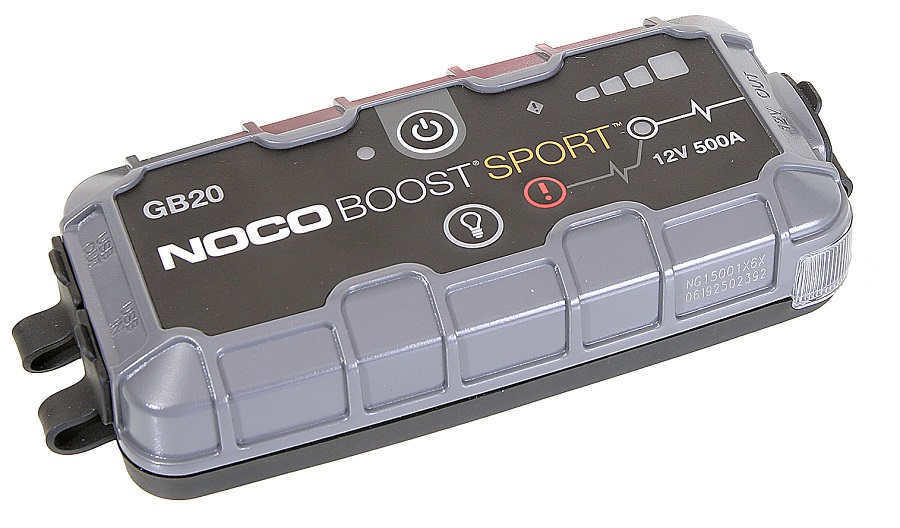
NOCO Boost Sport GB20
Award: Best Buy
RRP: $99.95 / £81.77
Performance: 8/14
Is it worth the money? 6/6
Overall score: 14/20
After years of almost having the UK’s smart charger market to themselves, Ctek now has strong competition from the American NOCO brand. And whilst Ctek seems reluctant to launch a jump starter, NOCO has no such qualms. With up to 500 cranking Amps available, rated to start up to 4 liter petrol engines, the GB20 caters for the vast majority of cars and small SUVs. It’s a well-made, solidly performing, unit that’s a doddle to use. Best points are the generously long leads, the bright LED torch, ample safety features, and an intuitive one function per button panel layout.
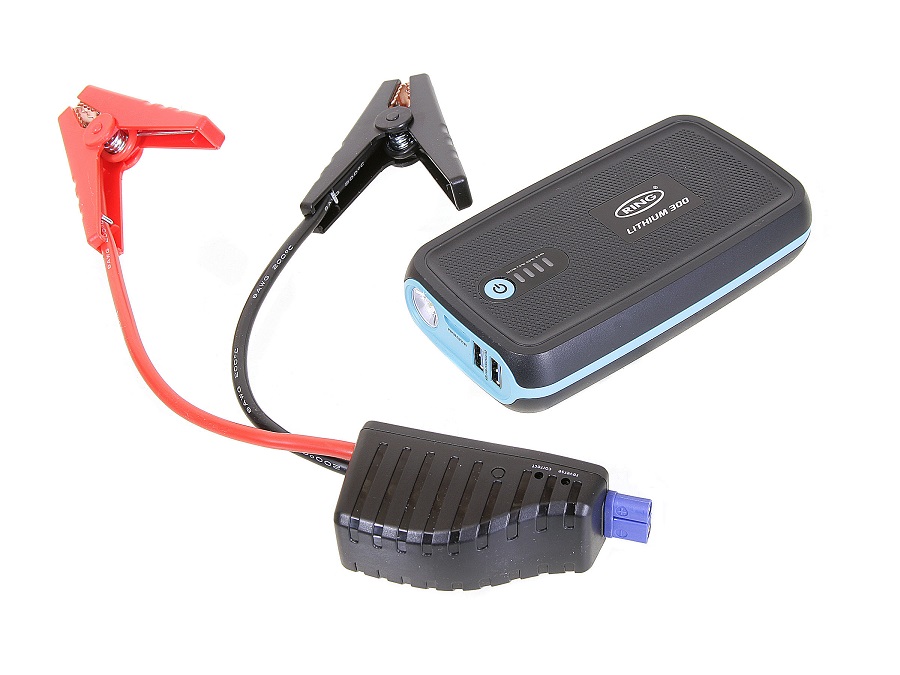
Ring RPPL300
Award: Recommended
RRP: $122.23 / £99.99
Performance: 8/14
Is it worth the money? 6/6
Overall score: 14/20
Marginally less gutsy than the winning NOCO, Ring’s RPPL300 still packs sufficient punch to wake up petrol and diesel engines up to 3 litres. And, really, there’s little to choose between the two models – especially being so close in price. Whilst this looks more pocket sized, for portable USB charger duties, forget it – at 17 x 9.5cm it’s too bulky. So, really, we’re down to details. The two 2.4 Amp USB outlets are a plus, but all functions being controlled by one button – and tiny LEDs to convey safety warnings – means we prefer the NOCO’s foolproof simplicity.
Interested? Buy it here. Or, check out price comparisons for similar Ring jump-starters below:
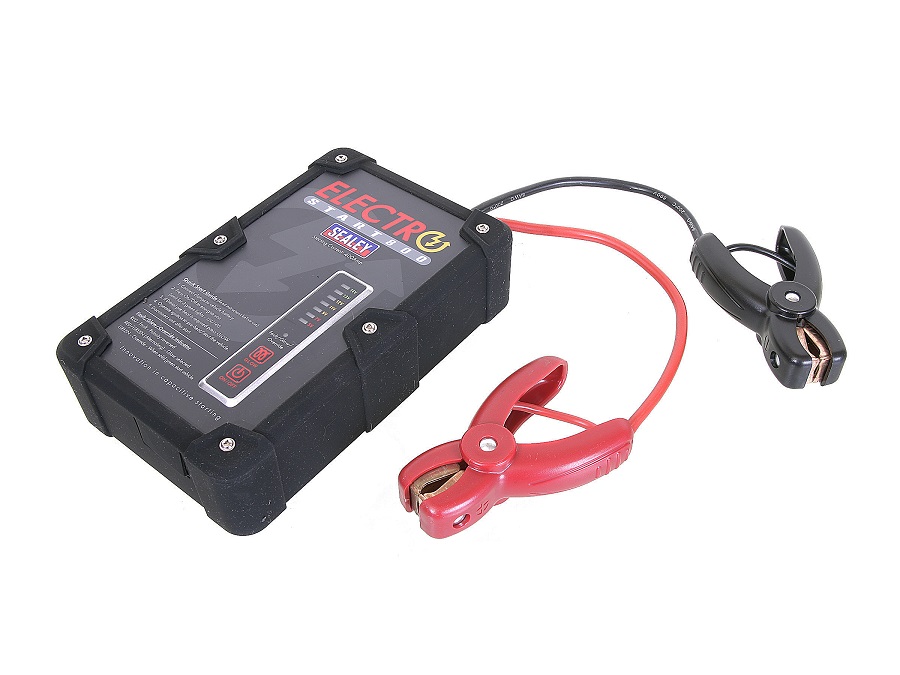
Sealey E/Start800
Award: Recommended
RRP: $234.63 / £191.94
Performance: 9/14
Is it worth the money? 5/6
Overall score: 14/20
Heard the one about the jump starter that uses your car’s dead battery to help it get the engine going? Sound bonkers? Maybe so, but that’s exactly what this unit does. Car batteries that drop below 11 volts may not have enough oomph to start an engine, but they still contain a vast amount of energy. E/Start800 feeds off this – or another battery, 12-volt socket, or USB source – for a couple of minutes, and rearranges the energy into a shorter higher voltage starting punch. The beauty of this approach? No – easily forgotten – maintenance charging ever needed.
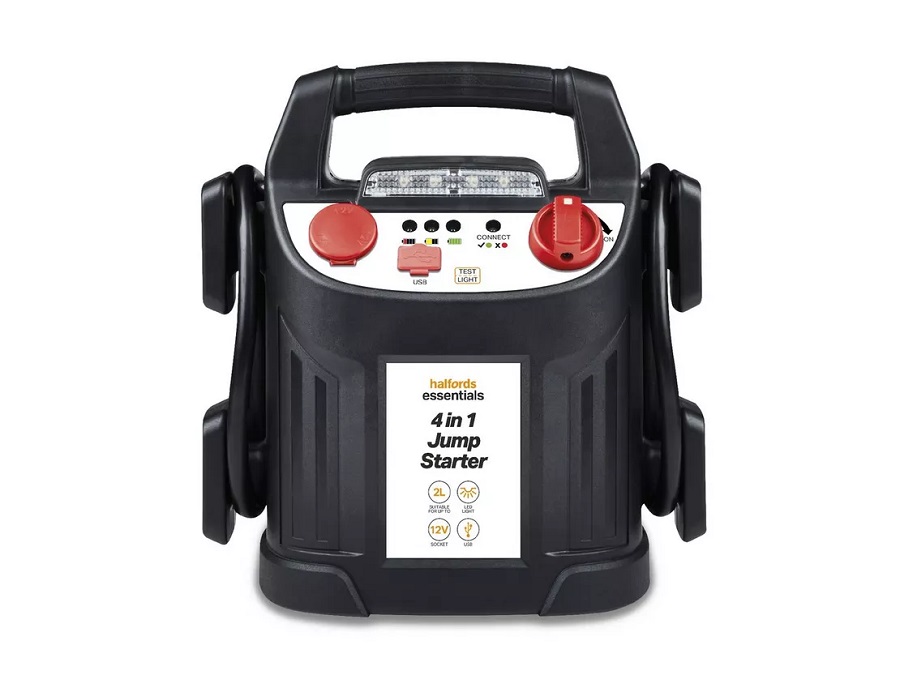
Halfords Essentials 4 in 1 Jump Starter
Award: Best Budget Buy
RRP: £64.99
Performance: 5/14
Is it worth the money? 6/6
Overall score: 11/20
Easily the best of the DIY priced traditional boosters, marrying many of the Ring RPP148’s innovations with the gutsy performance of Clarke’s venerable but basic Jump Start 900. Better still, Halfords’ keen pricing undercuts both rivals. Going back to those innovations, an isolator allows spark free battery connection, there are two 12-volt outlets and a USB socket – albeit with a low 0.5 amp output, and the LED light is brighter and more durable than Clarke’s museum piece bulb set up. Rated at 2 litres for petrol and diesel engines, shorter than ideal booster leads are our only whinge.
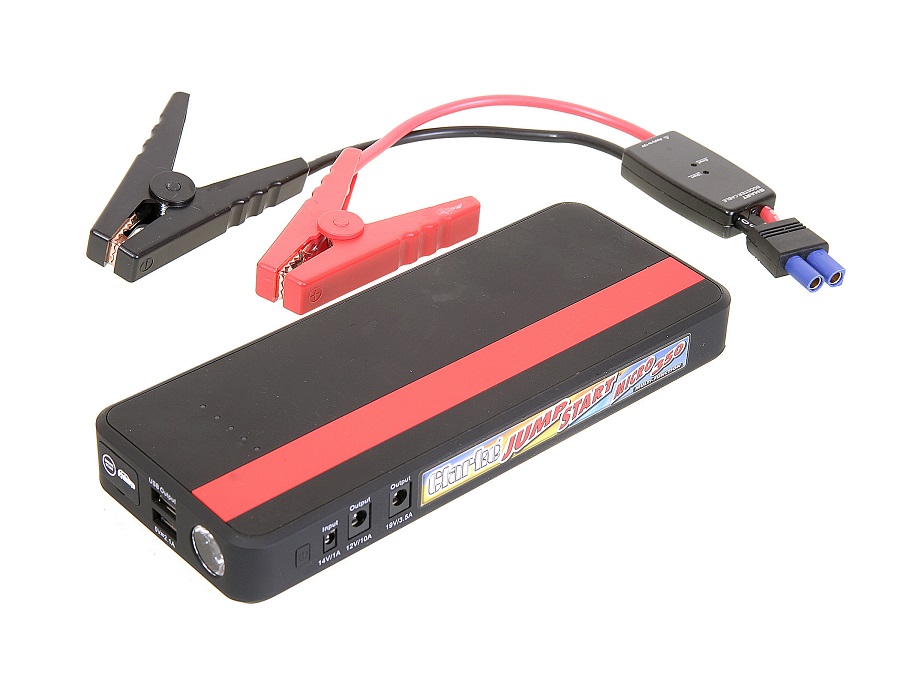
Clarke JSM350
RRP: $129.56 / £105.99
Performance: 8/14
Is it worth the money? 5/6
Overall score: 13/20
Clarke rates the JSM350’s 500 Amps output suitable for starting up to 6 liter petrol engines and 4 liter diesels. And, make no mistake; this little box really packs a punch. But it’s even more impressive as a portable power pack. As well as two 2.1 Amp USB sockets, there are 12- and 19-volt outlets and a vast array of adapters – allowing connection to countless laptops and other accessories. Lightening and 28-pin plugs cater well for Apple users too. But maintenance charging is needed every 3 months, and that’s by mains or 12 volts rather than USB.
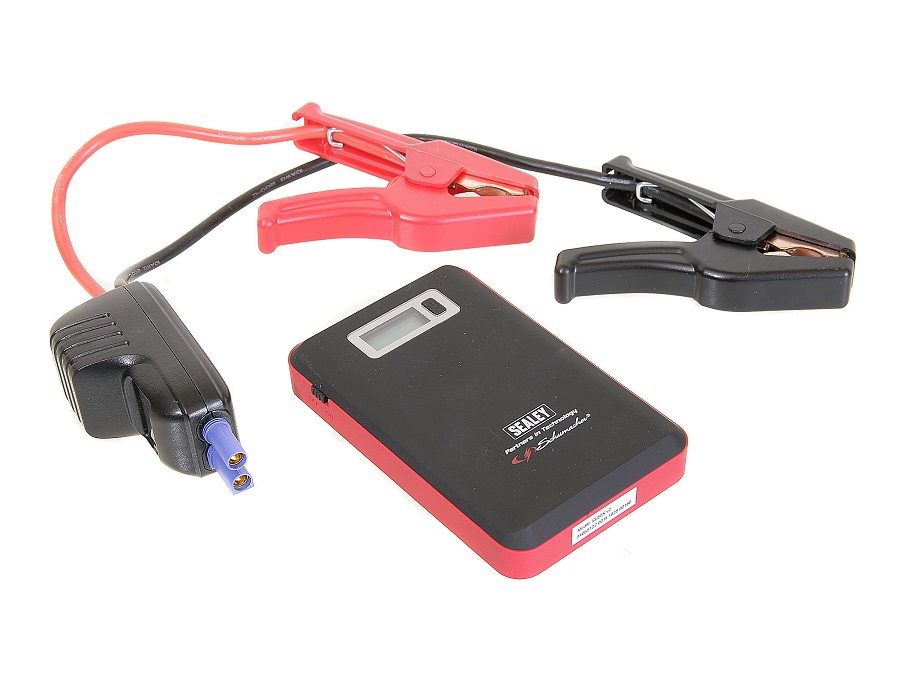
Sealey Schumacher SL65S
Price: $131.95 / £107.94
Performance: 7/14
Is it worth the money? 6/6
Overall score: 13/20
Suggested for up to 2 liter petrol engines, and 1.6 liter diesels, this booster is clearly at the lower end of the output scale. But that’s fine for owners of smaller-engined cars. And the reduced output allows a much-reduced size. At 13.5 x 8.5 x 2.5cm, weighing just 320 grams, this slips easily into a pocket – making it a dual use buy: a car starter and a USB power pack. Granted, we’d prefer both USB outlets to be 2.1 Amps, rather than one outputting 1 Amp max. But our biggest gripe is the monthly maintenance charge needed.
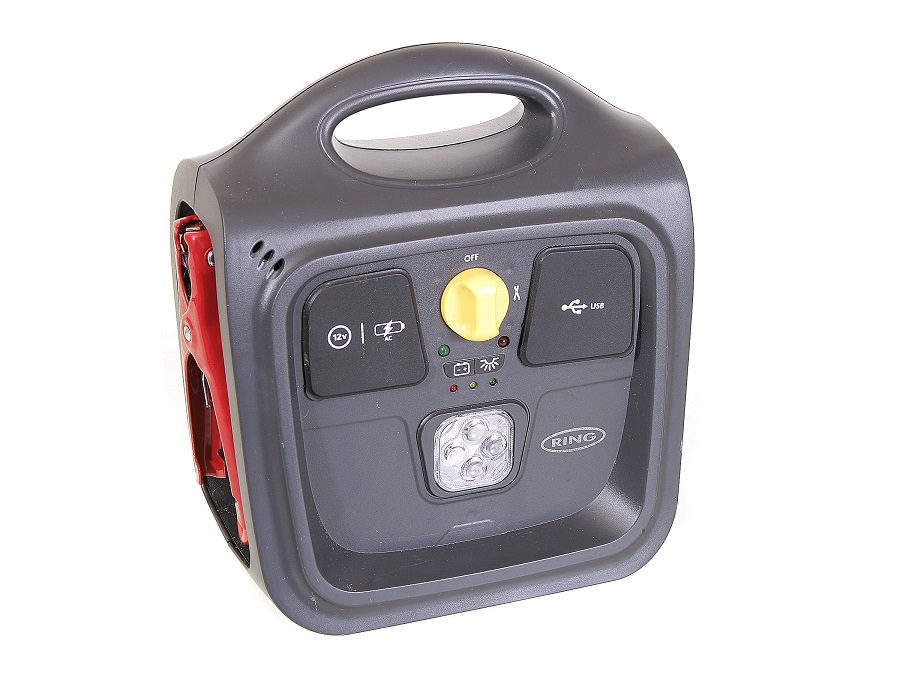
Ring RPP148
RRP: £74.95
Performance: 6/14
Is it worth the money? 6/6
Overall score: 12/20
At 24 x 27cm by 14cm deep, Ring’s RPP148 is incredibly compact for a lead/acid unit. But it still illustrates the contrast between traditional and lithium boosters. Both this and Sealey’s SL65s have very similar performance levels – Ring suggests up to 1.8 Litre petrol engines – but you won’t get this in your pocket or even glovebox! Size aside, many of the goodies found on lithium units are also included here. As well as the de rigueur 12-volt cigarette lighter socket, you get two 2.1 Amp USB outlets. Our main moan is that charging is by mains only.
Interested? Buy it here.
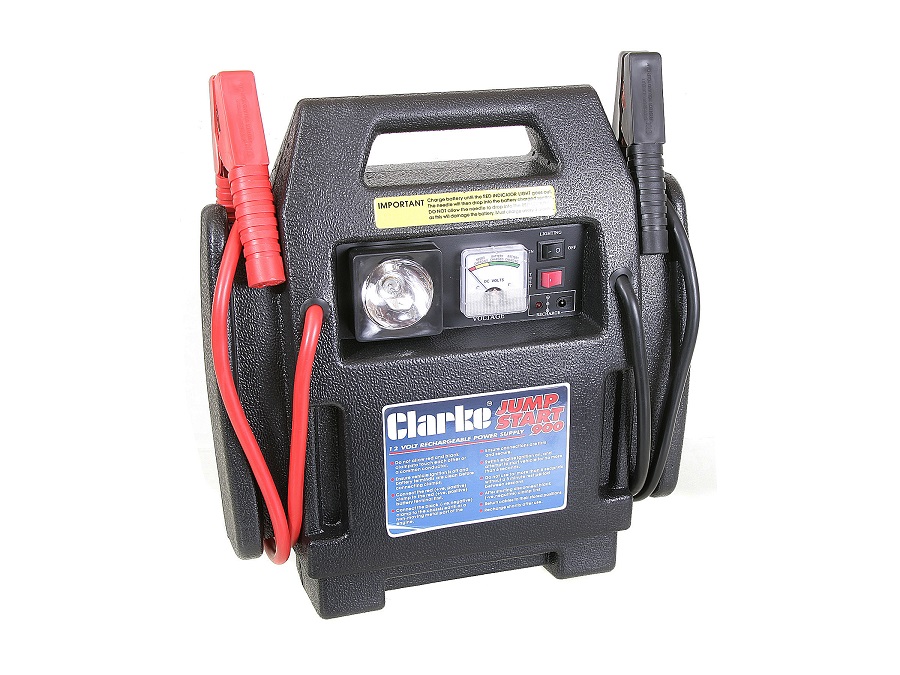
Clarke Jump Start 900
RRP: £95.98
Performance: 6/14
Is it worth the money? 5/6
Overall score: 11/20
Clarke’s Jump Start 900 has outlasted countless rivals – including from Clarke themselves – and even a pandemic (hopefully). Will it ever disappear from Clarke’s range, we wonder? Probably not because, ancient and basic as it is, so many of the essentials are spot on. Such as 400 Amps of cranking power, 17Ah of reserve, usably long 1m booster cables, plus mains and 12 volts charging. But niceties are few and far between. The leads, for instance, are permanently on – making connection a little lively. And the built-in light? With its little bulb, it’s quaint rather than illuminating.
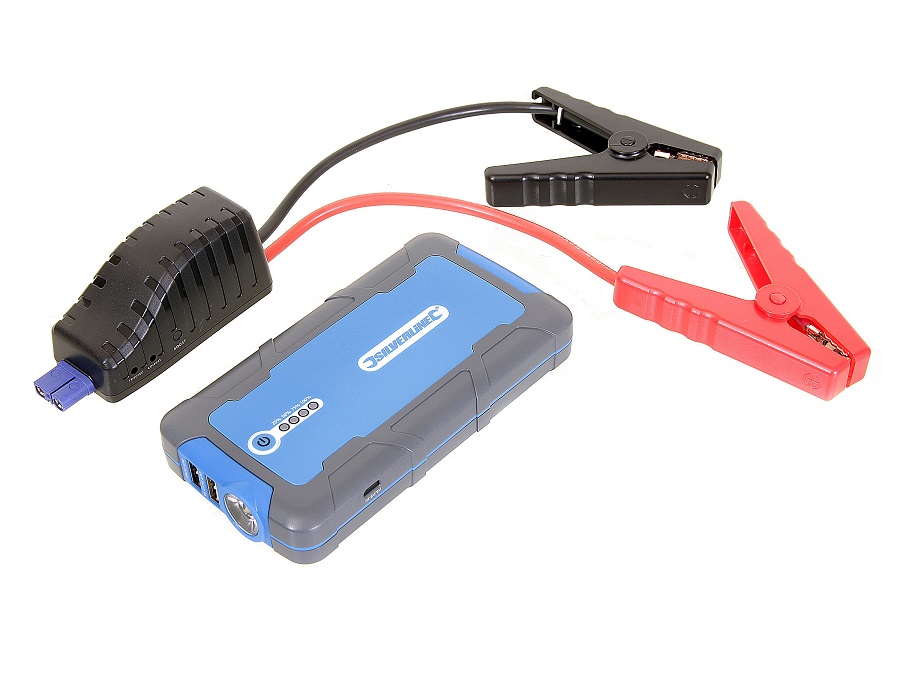
Silverline 684786
RRP: $81.58 / £66.74
Performance: 5/14
Is it worth the money? 6/6
Overall score: 11/20
The cheapest lithium pack here by far which means it would be crazy, given how hazardous lithium battery technology can be, to risk buying a barely cheaper unbranded model off the web. Especially as this has a three-year warranty. Despite the price, Silverline suggests the unit is suitable for up to 2.5-litre petrol engines and 2.0-litre diesels. Enthusiastic performance in our tests makes those claims believable. With a modest 6Ah capacity, forget numerous repeat start attempts between charges. But the unit’s two USB outlets, and a slew of different leads, makes it great for tech charging duties.
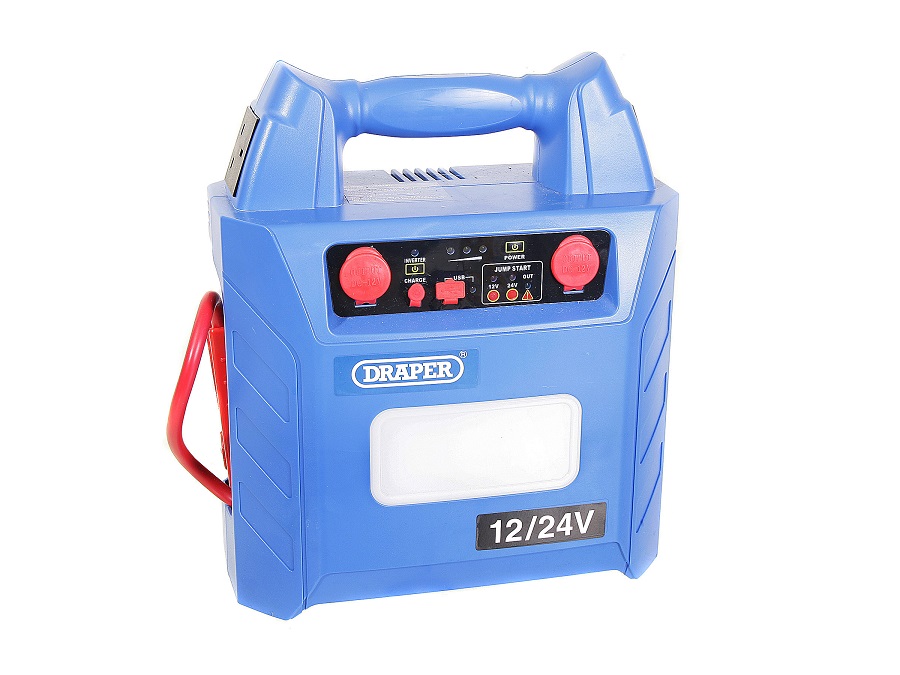
Draper 70554
RRP: $279.84 / £228.93
Performance: 9/14
Is it worth the money? 1/6
Overall score: 10/20
With lithium models averaging at around 300 grams, this 13.5Kg monster feels huge. But, with up to 3000 starting Amps available, the output’s also huge, meaning there are few engines this won’t wake. Including commercials, thanks to its 24 Volt mode. To make full use of the massive 40Ah internal capacity there’s a USB, two twelve volt, and even two mains sockets – powered by an on-board inverter (300 Watts max). But the safety heavy electronic control system is clunky, and such a big unit should be on the ground during start attempts – something the short booster leads don’t allow.
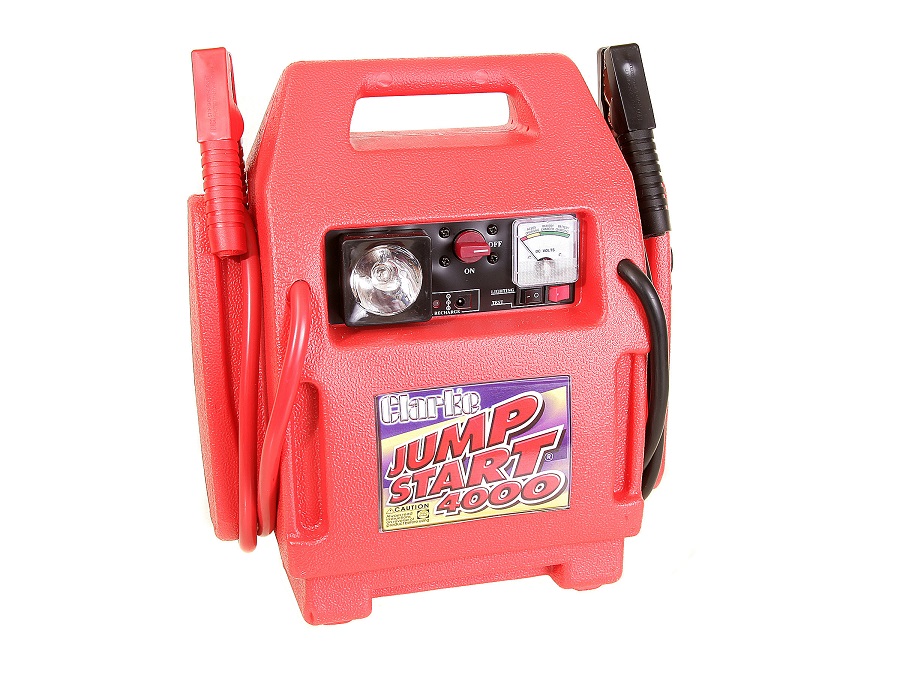
Clarke Jump Start 4000
RRP: £197.99
Performance: 8/14
Is it worth the money? 1/6
Overall score: 9/20
Another absolute powerhouse. Granted, peak cranking current is 2200 Amps rather than the Draper’s 3000. But, again, there are few cars, SUVs, or 4x4s this won’t rouse. Clarke suggests up to 6 liters petrol, and 4 liters diesel. Used on more mundane machinery, the huge output and 40Ah capacity allows several starting attempts between charges. Although more recently introduced than the evergreen Jump Start 900, the two models are obviously closely related. On the plus side, that means quality 1m long leads. But, other than an isolator – allowing arc free clamp connection – there are few other safety features.
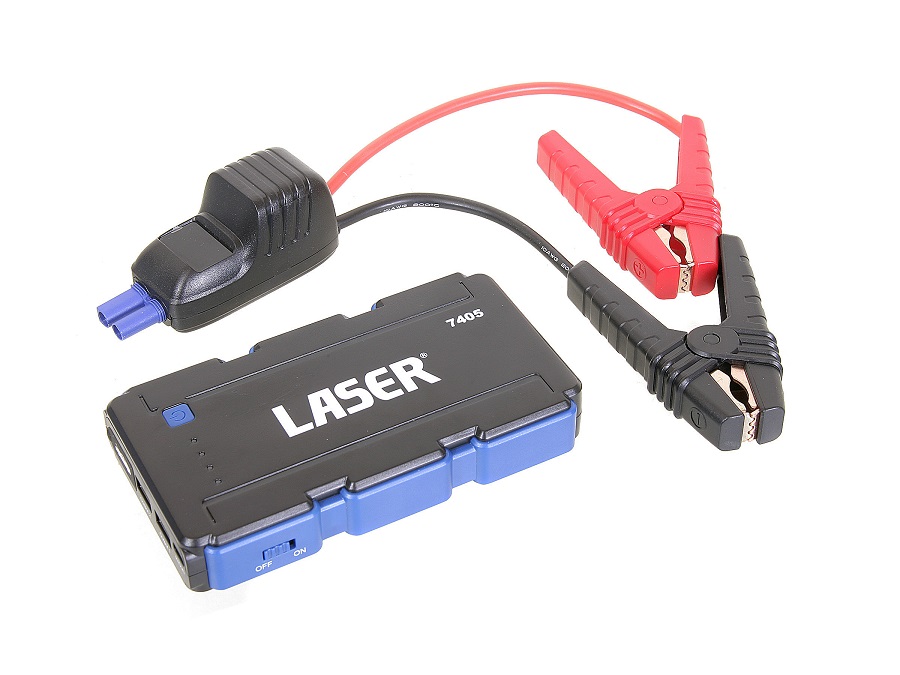
Laser 7405
RRP: $263.68 / £215.71
Performance: 6/14
Is it worth the money? 3/6
Overall score: 9/20
The punchiest lithium jump starter here, which Laser rates – perhaps a little conservatively, we think – suitable for up to 4.5 liter petrol engines and 3.5 liter diesels. But although the unit’s output is impressive, it’s only slightly ahead of the pack. Unlike price, which is considerably north of the winning NOCO and Recommended Ring. That quibble aside, there’s plenty to like. Two 2.1 Amp USB sockets are joined by a third that outputs up to 3 Amps and doubles as the charger input. Laser has excelled with a clever charge/output lead that caters for almost all USB configurations.
Words by James Stanbury, originally featured in Car Mechanics.

